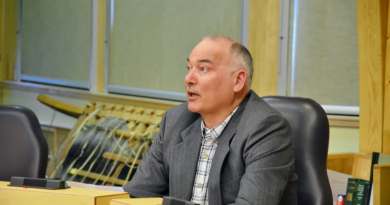Stop signs in northern Canadian town to include Indigenous languages
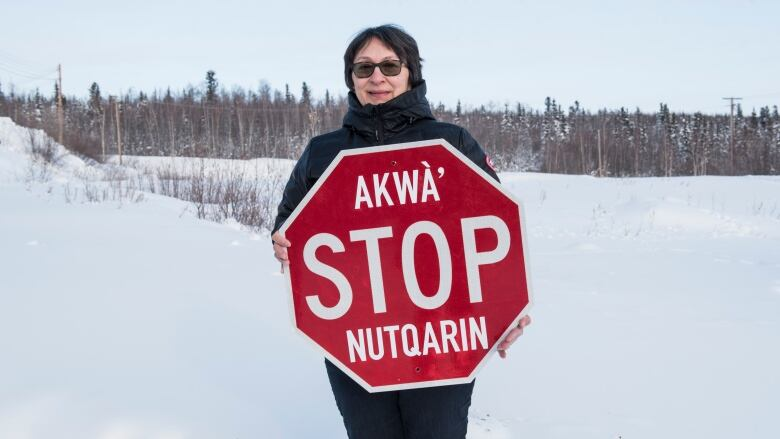
A new multilingual stop sign project in Inuvik, N.W.T., is hoping to highlight the importance of Indigenous language preservation.
The community-based initiative has created stickers for the stop signs in town, translating them into Inuvialuktun and Gwich’in.
The project was approved by the town in a meeting last week, and the new signs are rolling out across town over the next week or so.
‘Good for the language’
Mabel English is a local elder and teacher who was consulted about the Gwich’in translations for the project. She teaches the language at the Children First Centre in Inuvik.
She said the project is a good way to preserve the languages for everyone who lives in town, regardless of what language they speak.
“It’s good for the language. I think everybody should start learning the language. Everybody, not only Gwich’in people, so they could communicate with one another.”
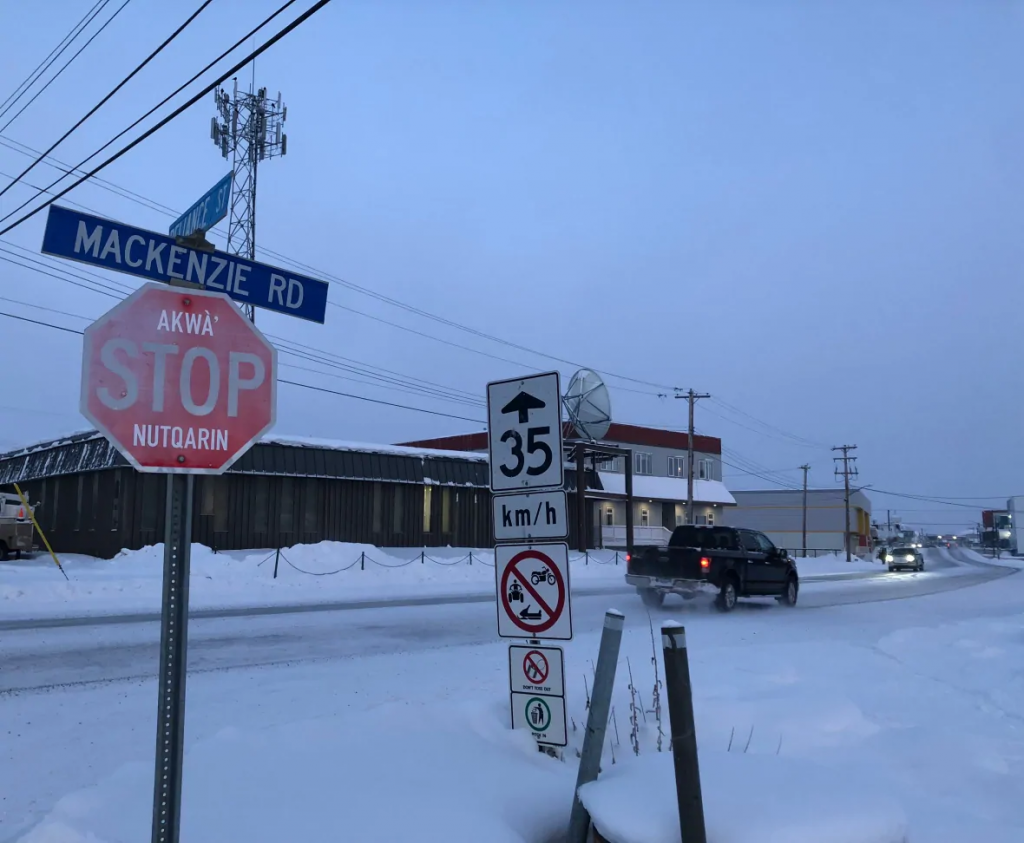
This is not the first project of its kind in the territory. In 2017, stop signs in Fort Smith, N.W.T., were replaced with signs that show ‘stop’ in four languages: English, French, Cree and Chipewyan.
Beverly Amos was also one of the people who was consulted for the project in Inuvik. She lives and works in the town as a language consultant at the Inuvialuit Cultural Resource Centre.
Amos said the stop signs are a step toward a broader push to have translations on all of the street signs in town.
“Start with a stop sign, it opens up other areas in our Inuvialuit and Inuinnait and Inupiat culture and way of saying things and doing things that our elders taught us a long time ago.”
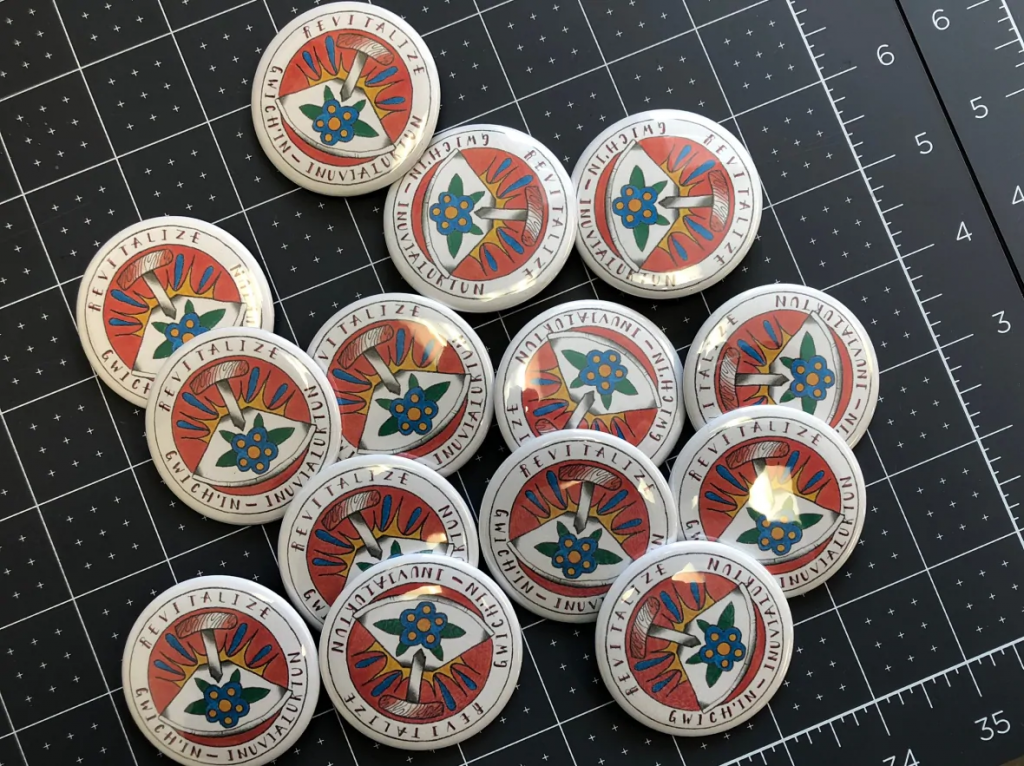
Ongoing discussions for 2 years
Grant Hood, senior administrative officer for the town of Inuvik, said the town discussing the signs with community members for about two years now.
They’ve been talking about different logistics, like safety issues around reflection of lettering and working with different mapping companies, said Hood.
“We wanted to be respectful of what the traditional languages are, and we’ll do everything that we can. But some logistics come into play as to what [is] the best way to go about it.”
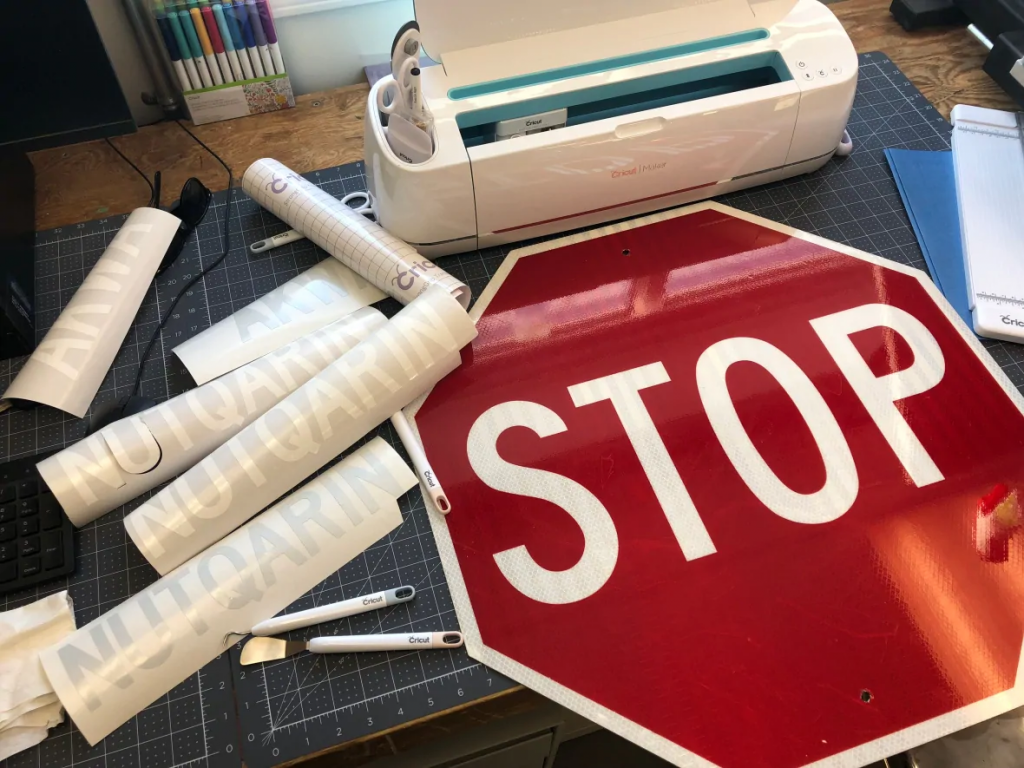
As for Amos, she said having the translations on all of the town’s street signs would be an important step toward reconciliation.
“It would show publicly that our language is still here. Languages in our communities are still here and we still remember the people that streets are named after — just like anywhere else.”
Hood said the town hopes to start making changes to the rest of the street signs over the course of this next year. They also hope to correct Indigenous words some say are misspelled on current signs.
Related stories from around the North:
Canada: Arctic Canada: Cape Dorset council endorses vote to change community name to Kinngait, CBC News
Finland: Budget cuts threaten international Sámi language cooperation, Yle News
Norway: Walt Disney Animation Studios to release Saami-language version of “Frozen 2”, Eye on the Arctic
Russia: Russia removes critical voices ahead of Arctic Council chairmanship, claims Indigenous peoples expert, The Independent Barents Observer
Sweden: Sami indigenous village wins historic land use case over Swedish state, Radio Sweden
United States: Inuit leaders applaud UN move to designate International Decade of Indigenous Languages, Eye on the Arctic



